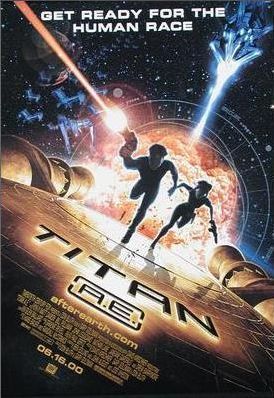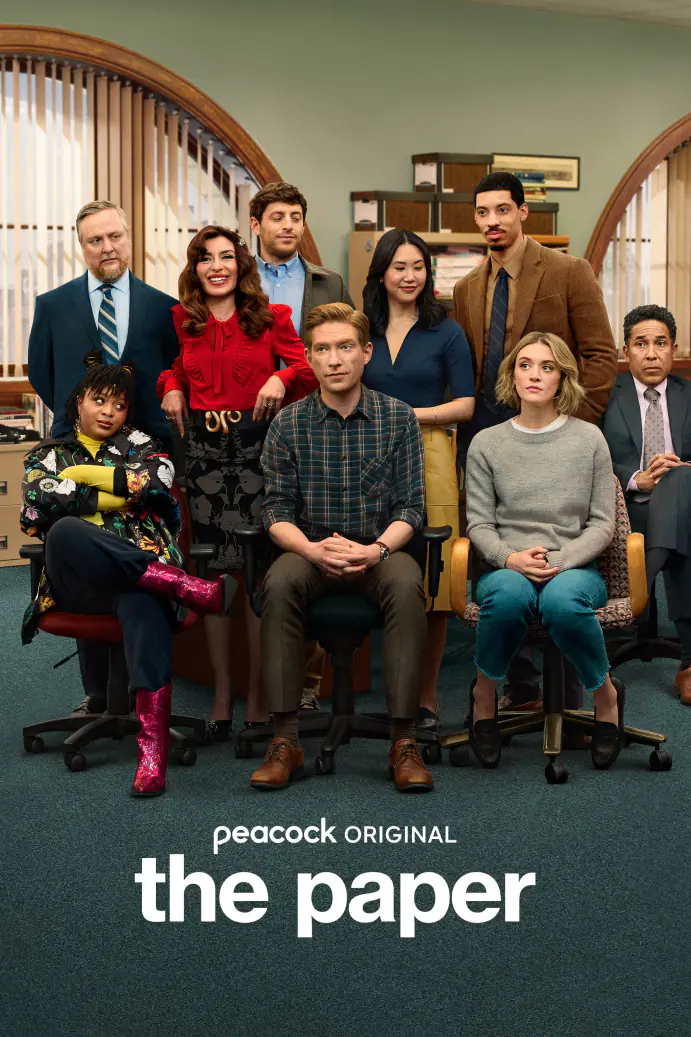“A New Spin on THE OFFICE Format”

| None | Light | Moderate | Heavy | |
|---|---|---|---|---|
| Language | ||||
| Violence | ||||
| Sex | ||||
| Nudity |
What You Need To Know:
Unfortunately, the first three episodes of Season One follow a pagan, anything-goes worldview, as society and those around them shape the characters’ morals, rather than the Bible or Christian beliefs. This factor leaves the show open to characters making fun of anything and everything, including Christianity, but also political correctness. Furthermore, the show features strong foul language, including 22 profanities and obscenities across the first three episodes; therefore, MOVIEGUIDE® advises extreme caution for older teens and adults.
Content:
Largely a pagan, anything goes worldview with characters having their morals defined by the people and society around them, rather than the Bible or Christian beliefs. Anything is fair game to be made fun of or mocked including multiple jokes aimed at Christianity, but some jokes also toeing the line on political correctness. Nonetheless, the characters believe in being politically correct even though the show can point out the absurdity of it. One character is also pro-military and served in the American Army and is proud of it;
Strong foul language though much of is light, is potty humor or is sexual innuendos. However, the show also features 1 “f” word, 1 sh** and 5 instances of the Lord’s name being taken in vain;
Mild and brief slapstick violence;
No sex, though one character is labeled as asexual. The first episode also features two “sexy” posters;
No nudity;
None;
One characters smoke cigarettes on occasion; and,
Moderate miscellaneous immorality such as lying, sabotage, slander, gossip, hypocrisy, greed, and revenge.
More Detail:
THE PAPER is a very entertaining and funny show, though it takes a different tone from THE OFFICE, featuring less absurdity. Viewers who come in expecting the same show as THE OFFICE may find this disappointing, but it also leaves the show more rooted and able to pursue different storylines than those explored in the original show.
The first three episodes of Season One follow a pagan, anything-goes worldview, as society and those around them shape the characters’ morals, rather than the Bible or Christian beliefs. This factor leaves the show open to characters making fun of anything and everything, including Christianity, but also political correctness. Furthermore, the show features strong foul language, including 22 profanities and obscenities across the first three episodes; therefore, MOVIEGUIDE® advises extreme caution for older teens and adults.
The first episode informs viewers that the documentary team, who worked at THE OFFICE, returned to catch up with the old crew but found out that Dunder Mifflin had been bought out by the paper company Enervate. Instead, the documentary crew focuses on the Enervate-owned newspaper company, the Toledo Truth Teller. The newspaper has become extremely run-down, focusing primarily on clickbait articles and ads. However, Ned, a new editor-in-chief, has arrived to take over the paper and make it respectable again.
Unfortunately, Ned’s efforts are ruined at every turn as he is sabotaged by Esmeralda, the interim chief editor whom he is replacing as the head of the paper. She is extremely prideful and believes she ran the newspaper as well as possible. Thus, she sets Ned up for failure so she can take back her position as the head of the newspaper. Meanwhile, her right-hand man, Ken, who is a higher-up in Envernate, schedules meetings and events that interfere with Ned’s efforts as well.
After facing difficulties set into motion by Esmeralda and Ken, Ned invites everyone working at the Toledo Truth Teller to be volunteer journalists, and everyone accepts the offer.
The second episode follows Ned’s first attempts at getting his new staff into their journalism roles but quickly finds out that they are quite ill-prepared for the task. Meanwhile, Ned and Esmeralda continue to sabotage his work, causing him to become preoccupied as his employees mess up their assigned stories. As Ned is working on his first publication since becoming editor-in-chief, he’s extra stressed about publishing well-crafted articles in his paper but continues to have problems doing so.
The third episode sees Ned working to keep his best reporter – the only one with any real experience or talent – working for him after she expresses interest in leaving the Toledo Truth Teller to join the hotel business. As he leaves the office to pursue a story with her, however, he is thrown under the bus by Eseralda and Ken at a budget meeting with the owner of the newspaper, as he misses the meeting and is unable to defend himself. Meanwhile, the story Ned is working on goes sideways, and after a day’s work, they have little to show for their efforts.



 - Content:
- Content: 
